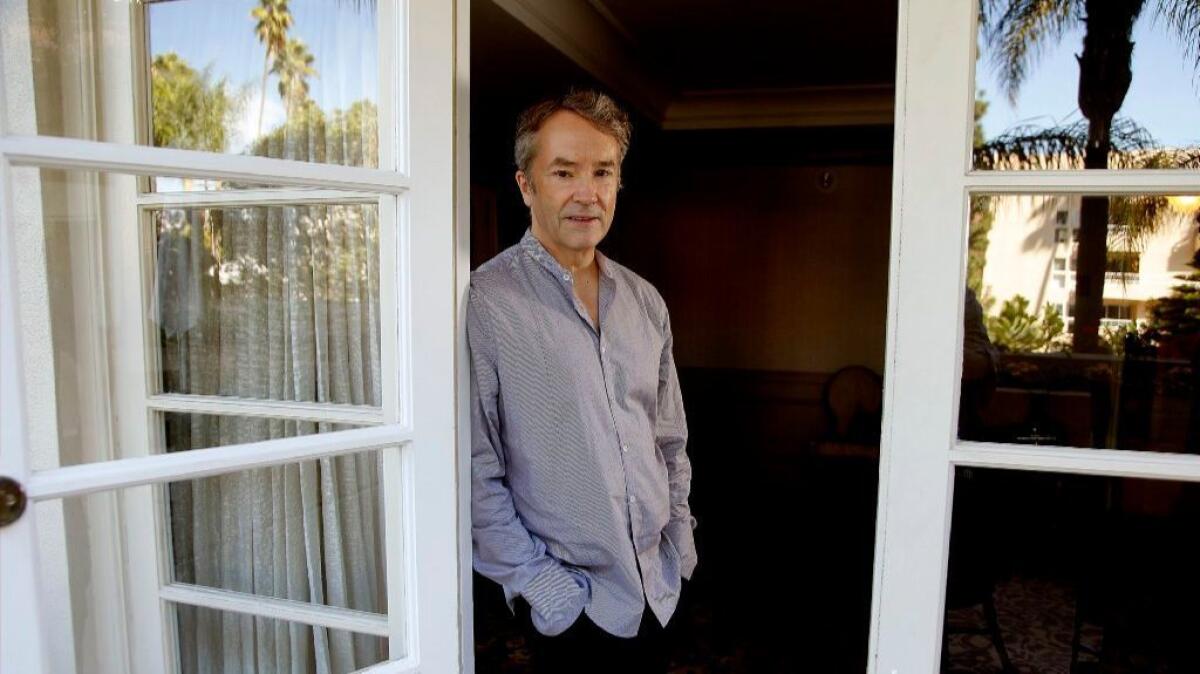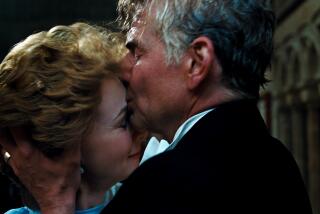Composer Carter Burwell left his comfort zone for ‘Wonderstruck’ and felt at home with ‘Three Billboards’

Carter Burwell is comfortable with irony. The New Yorker is best known for his work with Joel and Ethan Coen (beginning with 1984’s “Blood Simple”), where he has accompanied the duo’s black humor and self-deluded characters.
So when another regular collaborator, Todd Haynes, asked him to score the earnest and decidedly un-ironic “Wonderstruck,” Burwell wrote something that, “in terms of things like earnestness, just raw emotional sincerity, it is probably as far as I’ve gone,” he said, “because that’s just not the genre that I’m typically asked to assay. It’s also the hardest for me.”
Burwell’s previous score for Haynes’ “Carol” received an Oscar nomination.
“One of the interesting things about working with Todd is that he’s often pushing me out of my comfort zone,” the composer said with a laugh.

The trailer for Todd Haynes ‘“Wonderstruck.”
WATCH: Video Q&A’s from this season’s hottest contenders »
“Wonderstruck” tells the intertwined stories of a young girl and boy, separated by 50 years but connected by some mystery. They are also both deaf.
“Music is often playing the role that dialogue might in another film,” said Burwell. “A question that we had to solve was, how to have music that is there all the time, but not over-informing you. Because the story’s a mystery that’s hiding things from you all the time, so the music has to do that as well.”
For 1970s Ben, Burwell wrote a theme for guitars and fretless bass, apt for a kid whose home is filled with the sound of David Bowie. As the story paths begin to converge, Ben’s music intersects with Burwell’s theme for 1920s Rose, written for percussive instruments — glockenspiel, marimba, celesta — in keeping with her “puzzle-solving mind.”
The percussion, which was played by a London virtuoso who is herself deaf, also “removes you a little from the emotion of the scene because those instruments are devoid of sentiment,” he noted. “You can see her in situations that are very emotional, but you’re playing those instruments, and it saves us from sentimentalizing.”
Because the score needed to fill nearly every minute, and because the film was about kids dealing with loss, Burwell took pains to avoid gooey melodrama.
“I spent so much time pulling it back and pulling it back, so that it wasn’t over-informative,” he said. “It is a very emotional movie, and the music is playing that emotion. But I have to say, from my perspective, it’s underplaying.”
Another 2017 film, Martin McDonagh’s “Three Billboards Outside Ebbing, Missouri,” found Burwell in a more natural habitat. It’s also rooted in loss — Frances McDormand’s character has lost her daughter to a violent rape and spends the film at war with the local police — but as with McDonagh’s other films (“In Bruges,” “Seven Psychopaths”), it’s mingled with severe violence and pitch-black comedy.
I think you could perfectly well have done that film without music, and it would have been completely engaging.
— Composer Carter Burwell on ‘Three Billboards’
“I think you could perfectly well have done that film without music, and it would have been completely engaging,” Burwell said, “because of the way he orchestrates his drama and comedy. You’re constantly thrown off balance as a viewer. Whatever your expectation is, it’s confounded, but in a way that’s always fulfilling.”
McDonagh clearly thought it needed music, and actually left more open space for the score than in his previous films. Burwell first tried approaching it like a spaghetti western, where each character got their own distinctive motif, but quickly realized that it “simplified them too much.”
“And also, Martin just thought it was too ironical,” he said. “You were just sort of commenting on what was happening, rather than actually being in the film.”
He did respond to the western-like setting and story with rustic music for acoustic guitar and mandolin. When McDormand’s character goes into “Missouri housewife” battle mode, girded in her blue jumpsuit, Burwell accompanied her with a march — “but more like a march you would hear in a Baptist church,” he said, “with guitar and stomping and clapping.”
The other main theme is for the loss that pervades the film, and in this mode the score is just as earnest as “Wonderstruck.”
McDonagh “writes the most appalling violence into his work, and he loves that as a subject, as a tool,” said Burwell. “He loves violence in a way that Scorsese or Joel and Ethan do, he really does. But he is a softie at heart.”
More to Read
From the Oscars to the Emmys.
Get the Envelope newsletter for exclusive awards season coverage, behind-the-scenes stories from the Envelope podcast and columnist Glenn Whipp’s must-read analysis.
You may occasionally receive promotional content from the Los Angeles Times.






